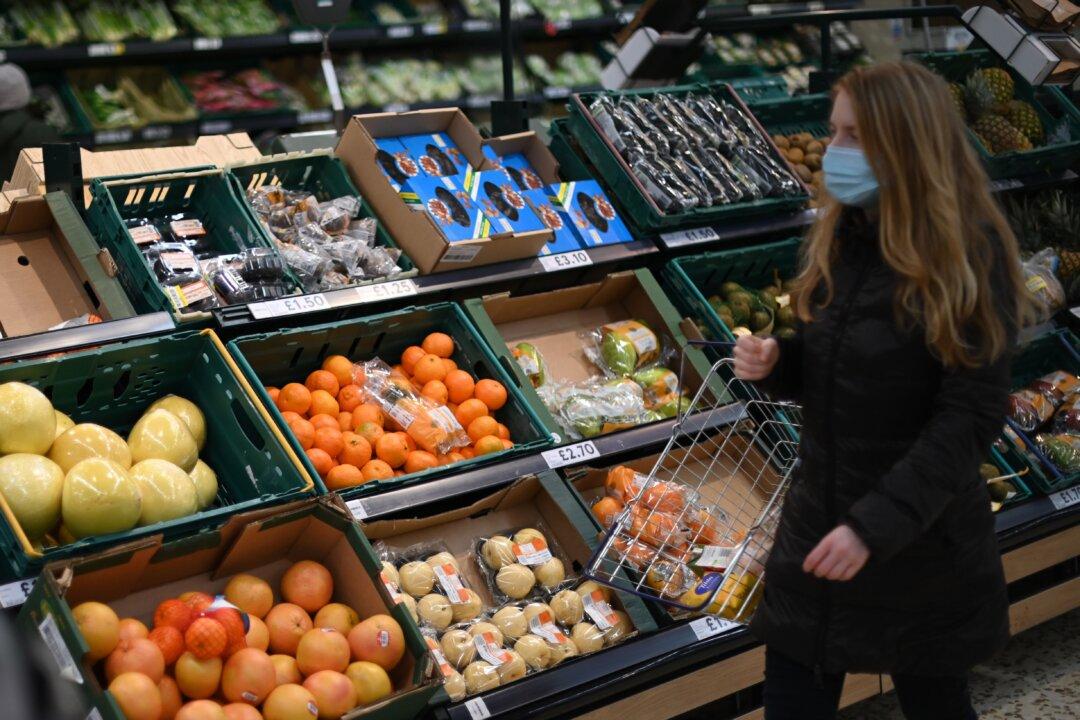The UK will start having problems with supplies of fresh vegetables and fruits from Dec. 27 if the UK-France border is not unblocked within the next 24 hours, a parliamentary committee was told on Tuesday afternoon.
To stem the spread of a new variant of the CCP (Chinese Communist Party) virus detected in the UK, the French government suspended all travel from Britain for 48 hours from 11 p.m. Sunday night (midnight Paris time), including travel linked to goods transported by road, air, sea, or rail.





